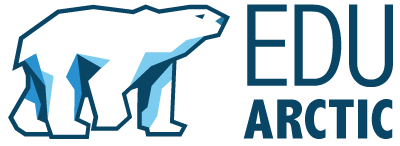Project Reports
This report presents the results of the CAWI Survey (Computer Assisted Web Interview) that has been issued among STEM teachers in 4 countries (Poland, France, Norway and Faroe Islands). Information was collected from 42 schools. The report focuses on the requirements of STEM teachers concerning the EDU-ARCTIC program and helps to achieve the objectives set out in WP3 Preparatory of EDU-ARCTIC Program. This report is the second step for the preparation of recommendations for the EDU-ARCTIC program. It stresses the needs and possibilities to use the program by STEM teachers. The report presents the statistical information from each question, which is followed by the descriptive part with global analyses and information on the differences among countries. The final part of the document contains reccomendations for the program development.
The report provides useful suggestions for the construction of EDU-ARCTIC tools and the content of the EDU-ARCTIC educational program. It’s based on four main components: desk research, the results of the CAWI survey conducted in 42 schools in 4 countries: Poland, France, Norway and Faroe Islands, theGrant Agreement and remarks from relevant discussions, which took place during the Svalbard methodological workshop in September 2016, which was organized for consortium beneficiaries to discuss implementation guidelines and to find the best, methodologically correct and effective ways of communicating scientific results to youngsters. Moreover, the report contains information on the beneficiaries‘ experiences and the lessons learned from other educational activities, e.g.: EDUSCIENCE or Scientix, which are considered useful for the implementation of the EDU-ARCTIC program.
Over the past 20 years, there has been growing interest in science education in most European countries, as well as around the world. Such policies usually have a dual purpose: to promote science literacy among all young people (and even adults) and attract young people to science and the disciplines of technology in secondary and higher education, with the aim of encouraging them to move to science and technology professions and/or research–scientific careers. At the same time, increased attention was paid to science education for girls and young people with vulnerable socioeconomic backgrounds. According to the European Schoolnet (EUN), skills in science, technology, engineering and mathematics (STEM) are becoming an increasingly important part for basic literacy in today’s knowledge economy. There is a need for one million additional researchers by 2020 in order to keep the Europe growing
D.3.1 Report on desk research

 This project (EDU-ARCTIC) has received funding from the European Union’s Horizon 2020 research and innovation programme under grant agreement No 710240. The content of the website is the sole responsibility of the Consortium and it does not represent the opinion of the European Commission, and the Commission is not responsible for any use that might be made of information contained.
This project (EDU-ARCTIC) has received funding from the European Union’s Horizon 2020 research and innovation programme under grant agreement No 710240. The content of the website is the sole responsibility of the Consortium and it does not represent the opinion of the European Commission, and the Commission is not responsible for any use that might be made of information contained.